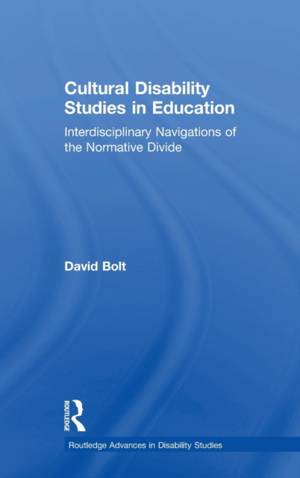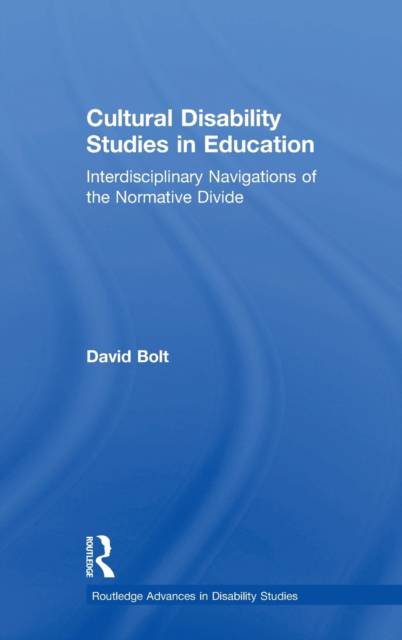
- Retrait gratuit dans votre magasin Club
- 7.000.000 titres dans notre catalogue
- Payer en toute sécurité
- Toujours un magasin près de chez vous
- Retrait gratuit dans votre magasin Club
- 7.000.0000 titres dans notre catalogue
- Payer en toute sécurité
- Toujours un magasin près de chez vous
Cultural Disability Studies in Education
Interdisciplinary Navigations of the Normative Divide
David BoltDescription
Over the last few decades disability studies has emerged not only as a discipline in itself but also as a catalyst for cultural disability studies and Disability Studies in Education. In this book the three areas become united in a new field that recognises education as a discourse between tutors and students who explore representations of disability on the levels of everything from academic disciplines and knowledge to language and theory; from received understandings and social attitudes to narrative and characterisation.
Moving from late nineteenth to early twenty-first-century representations, this book combines disability studies with aesthetics, film studies, Holocaust studies, gender studies, happiness studies, popular music studies, humour studies, and media studies. In so doing it encourages discussion around representations of disability in drama, novels, films, autobiography, short stories, music videos, sitcoms, and advertising campaigns. Discussions are underpinned by the tripartite model of disability and so disrupt one-dimensional representations.
Cultural Disability Studies in Education encourages educators and students to engage with disability as an isolating, hurtful, and joyful experience that merits multiple levels of representation and offers true potential for a non-normative social aesthetic. It will be required reading for all scholars and students of disability studies, cultural disability studies, Disability Studies in Education, sociology, and cultural studies.
Spécifications
Parties prenantes
- Auteur(s) :
- Editeur:
Contenu
- Nombre de pages :
- 120
- Langue:
- Anglais
- Collection :
Caractéristiques
- EAN:
- 9781138103252
- Date de parution :
- 03-07-18
- Format:
- Livre relié
- Format numérique:
- Genaaid
- Dimensions :
- 156 mm x 234 mm
- Poids :
- 371 g

Les avis
Nous publions uniquement les avis qui respectent les conditions requises. Consultez nos conditions pour les avis.






